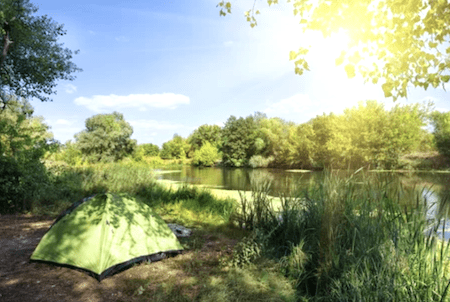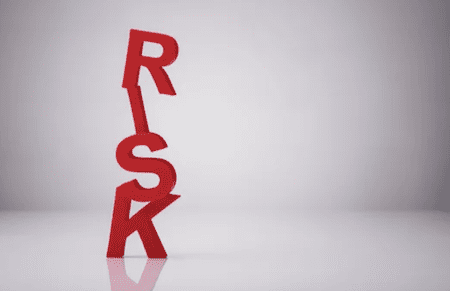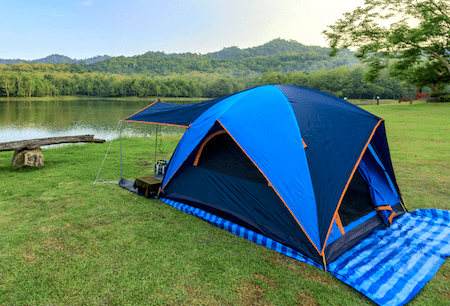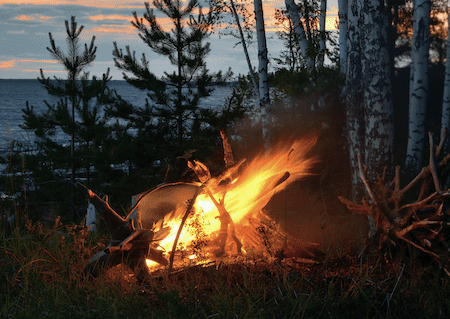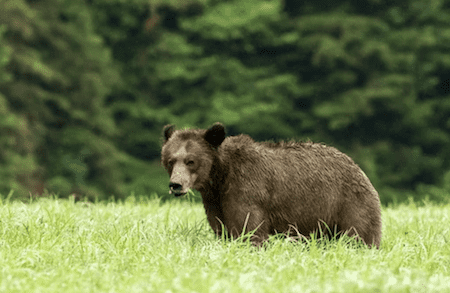Tent camping is one of the most popular ways to enjoy your vacation or free time and hundreds of thousands of people go camping during their holidays each year.
However, one may have second thoughts before deciding to sleep in a tent because of the potential risks that come along with it.
The idea of spending a night in the wilderness without any concrete wall to protect you from a hungry bear or harmful creature can terrify a lot of nature lovers.
With all these potential worries, how safe is camping in a tent?
Yes, it is actually safe, but you just need the right preparations and know what to do in any inconvenient situation.
Let me help you understand the perks of camping in a tent and by the end of this article, you will know exactly what to do and what not to.
Is Camping In A Tent Dangerous?
According to statistics, the kinds of risks people face are mostly related to what they do during camping, rather than sleeping in a tent.
So, you wouldn’t hear that a man got attacked by mountain lions that much.
But you will find it very common for people to sprain their ankles while hiking or suffer from dehydration in the Sahara.
A large portion of the reported accidents include such incidents as hypothermia, sprained ankles, falls, heart attacks, exhaustion, etc.
Again, there are a good number of hikers who faced disastrous events which were directly related to the tent. But in the grand scheme, it is relatively low.
Just like other outdoor activities, camping in a tent has a few drawbacks.
With that said, it is also true that most people consider tent camping safe, which it is.
So, what you need is the right preparations and a little education on the place you wish to go camping.
What Are My Risks?
You should never have the idea that you will be at potential risk of death throughout the night or the whole time.
There are millions of campers out there in the world and they rarely face any real danger.
Rather than worrying about what might happen at night, you should be worried about other risks. Shortage of food, network, weather, the campsite, location, etc. is some of the major issues you need to keep in mind.
Depending on the location, you also need to look out for the animals that live nearby or in that area.
Just like these little things, there are a few more points that you need to check before actually going into the wilderness.
Because the calm and soothing nature that you wish to enjoy is home to the wolves and hyenas, and if unprepared, your experience could be fatal.
But don’t worry, I have done enough research to keep you safe and all you need to do is follow these tips.
10 Tips For Safe Tent Camping
You cannot possibly anticipate every situation you might face while camping in a tent, but I can help you prepare in the best way possible with these 10 tips.
So, let’s dive in!
#1. A Safe Campsite
First and the most important question, where will you pitch your tent? By the river where a grizzly bear comes to drink water?
Or inside a random cave that might fall on you anytime? Or perhaps in a low-lying area that is prone to flooding?
Of course, it will be none of them.
And I hope that you are getting my point. You must pick the right campsite for you and your family or friends to spend the night.
While picking the right spot you should be careful about a couple of things. Such as, the campsite should be well-lit and not isolated too much.
Keeping a close distance from other campers will give you peace of mind and increase your chances of safety against any animal or human threat.
You should also consider your age, physical limitations, and medical needs if there are any.
Your campsite should have a barrier between you and nature. Do not pitch in a place prone to landslides or floods.
You want to avoid the peak or higher ground on a mountain. Because that might increase your chances of getting struck by lightning during heavy rain.
The last thing you need to check is proximity to animal dens, hornet nests, or any other creature that might sting you.
#2. Watch The Sky
You don’t have any control over the weather. But what you can do is prepare for it based on what you know and your location.
Based on the weather forecast and the location, be ready for rainfall, snow, lightning, high heat, etc.
The weather often changes rapidly, so it’s safe to consider the weather for the 2 days leading up to the campout as well as during your stay.
This helps you prepare your camping gear, clothes, etc. and you will feel confident to tackle any situation.
#3. Food Storage
There have been numerous reports stating that the tents have been attacked or sniffed into by bears, wolves, coyotes, foxes, and even squirrels.
Bringing food into your tent is the worst idea and as a matter of fact, you don’t even want to keep food within 100 meters of your tent.
So as soon as you finish your food, try to dispose of the remains in a bear canister and wash anything that could lure the animals with water properly.
Remember, you don’t want to become bear food!
#4. The Campfire
Do you wish to burn and turn into ashes? If you don’t, then keep the campfire always checked!
Campfires are a great way to cook food, hang out and keep everyone warm, but you need to be careful with it.
Be sure to keep it away from your tent, trees, and bushes and keep it contained in a fire pit.
Always keep a bucket filled with water nearby, just in case you forget to put the fire out before sleeping and smell something smoking in the middle of the night inside your tent.
#5. Keep An Eye On Everything Around
You need to constantly monitor your campsite and everything that’s surrounding you. You will be busy having fun with your friends or your family, but someone needs to keep an eye around.
Look out for wild animals, natural threats like landslides, floods, or even any human threats.
People have been victims of robbery and theft, so you need to stay alert. Have enough rest and sleep so that you can keep an eye out for problems.
You can also use sensory technology for your tent’s safety.
#6. Stay Hydrated
You need to have enough water. As camping by the river is not safe, you have to carry water with you.
For instance, if you are planning to go on hiking some rocky mountains or any remote places like the Grand Canyon, it is a must for you to have sufficient water for your body to function.
You will not find many sources of clean water, and purifying dirty water is an extra hustle.
In remote places where emergency services are hard to find, you don’t want to suffer from dehydration.
#7. Beware Of The Bugs
No matter which place you choose, you must beware of the little guys. These insects are often poisonous, and you must keep them away from yourself.
Mosquitos, ticks, and other insects pose a threat, and they can even spread fatal diseases.
For protection, you can wear clothes that cover your full body, or you can use any kind of spray, cream, gel, etc to keep the insects away.
#8. Don’t Camp Alone
It is always a better choice to camp with friends or family, rather than going alone. In fact, the greater the number, the better it is.
If you are alone, it decreases your chances of survival in any kind of situation. So, when you plan on camping, consider inviting your friends or making it a family tour.
Don’t forget to check out my exclusive group camping tips.
#9. Think About Medical Support
Whatever your destination is, always keep in mind where the closest medical support is. In any critical situation, time may not be on your side.
You need to get medical support as fast as you can. Another safer option is to carry a first aid kit with you so that you can provide primary care to the injured.
#10. Self-Protection
Whatever the situation, it is you who must protect yourself and your family.
To ensure this, you can carry a gun (only if it is licensed and legal) with you as protection not only against wild animals but also human threats.
Other options are pepper spray, bear spray, stun gun, etc.
A utility knife will also come in handy. You can use it for protection as well as for other general uses. Whatever measure you take, be sure that it doesn’t turn out to be your last camping.
Also, consider locking the tent from inside. It is not complete protection but the thief will think twice before doing anything wrong.
Final Thoughts
Camping outdoors can be fun and an escape from our materialistic life.
Everyone finds excitement in seeking oneness with nature and the aesthetics of the beautiful destinations.
Like any other activity, camping in a tent also comes with some risks. But nothing to worry about.
I believe if you follow the tips that I have mentioned in our guide about “how safe is camping in a tent” and maintain a few things, there won’t be any hiccups for you.
Happy Camping!

